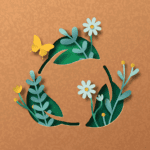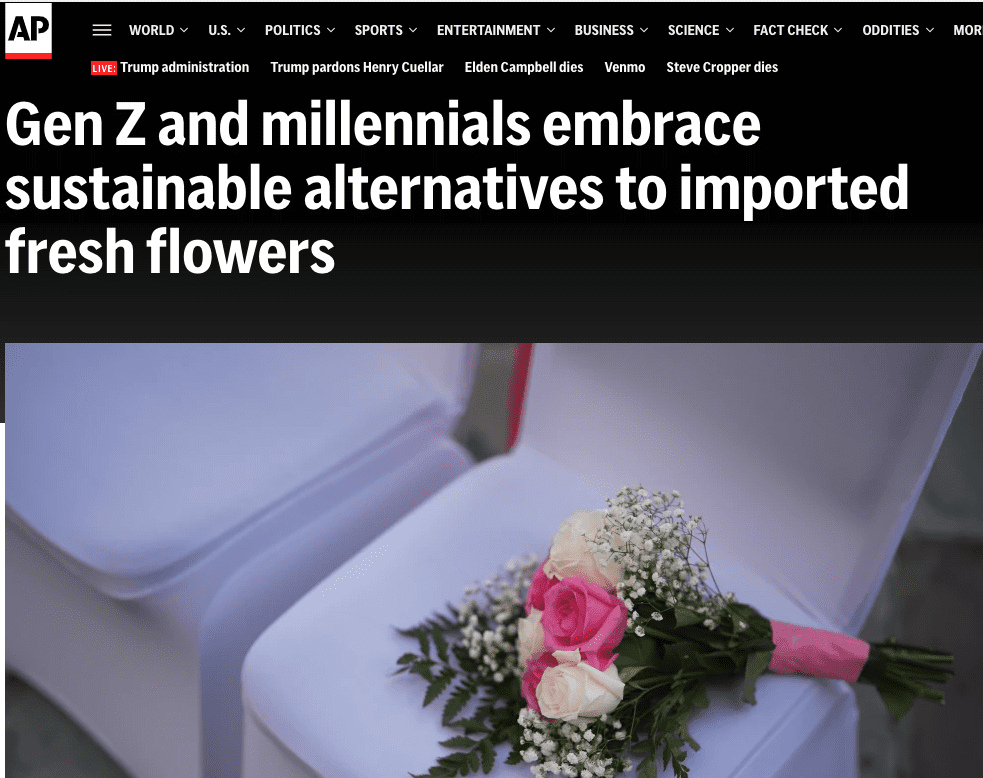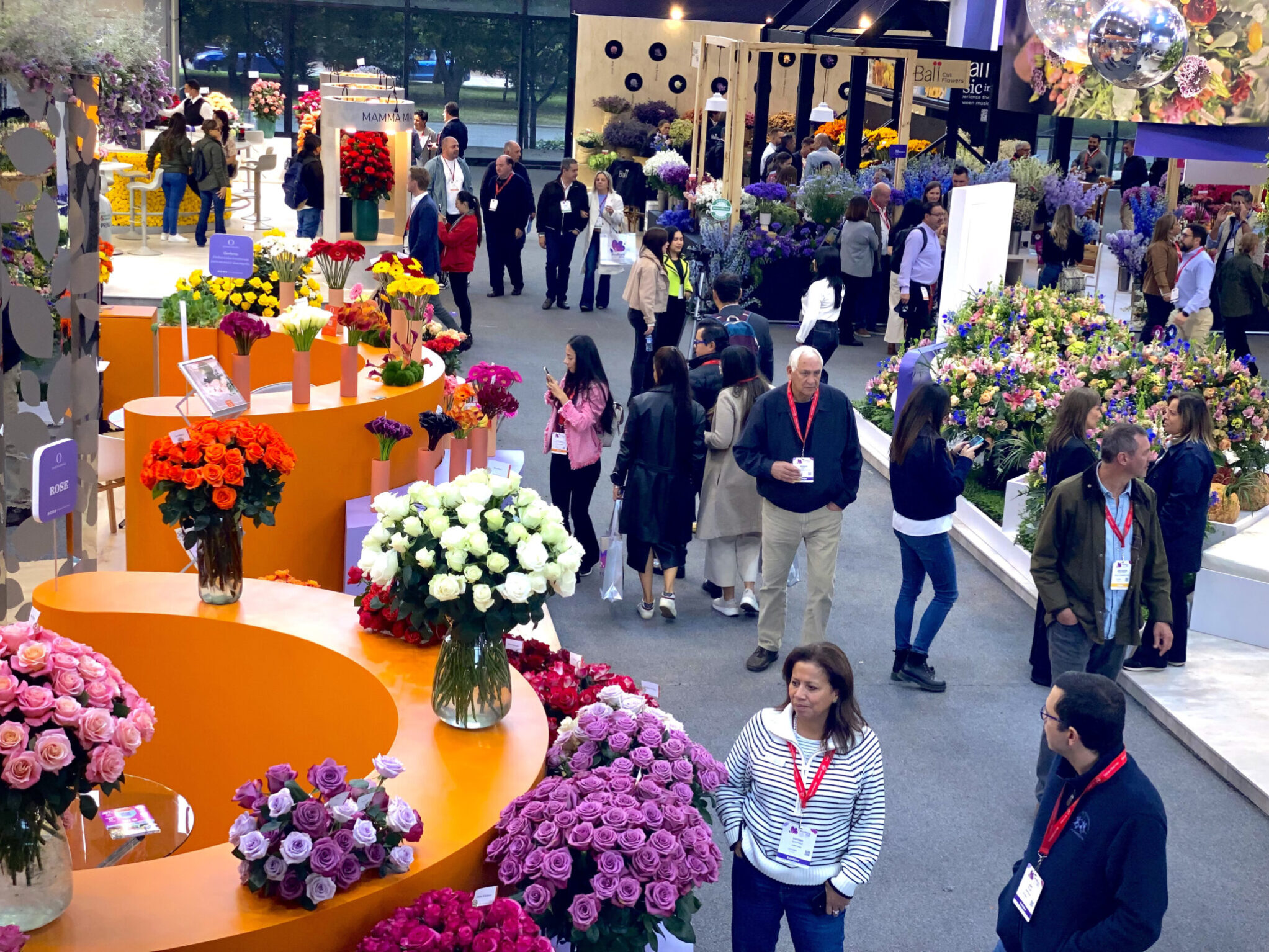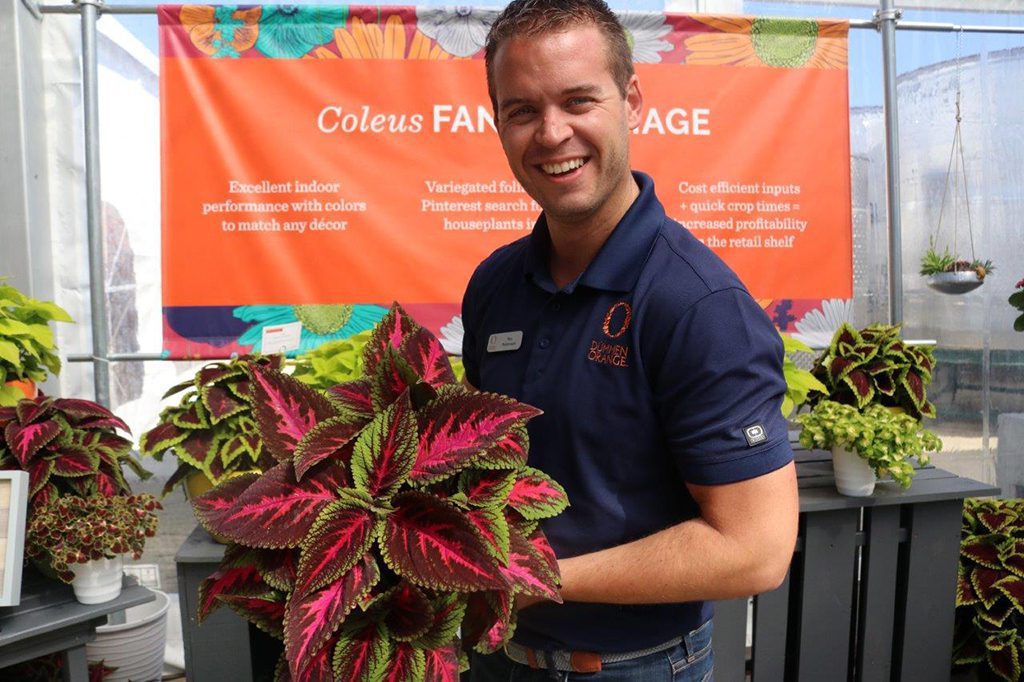
Bas Pellenaars, Dümmen Orange’s commercial director of Latin America, shared the company’s latest efforts to create plant varieties that are more sustainable.
When it comes to sustainability, the floral industry continues to pursue green initiatives with gusto, from recycling water and hardgoods to composting plant material. Plant breeding is an area poised for explosive growth using genetic manipulation technology. Dümmen Orange’s latest efforts in plant breeding focus on developing plants that are more sustainable by virtue of their genetic qualities.
Bas Pellenaars, Dummen Orange’s commercial director of Latin America, loves working with products that “put smiles on people’s faces.”
“One aspect of my job focuses on what we need to do to get a better offering to the consumer,” he says. “When we do that, it helps everyone in the industry float higher.”
The company’s latest efforts in plant breeding focus on perfecting plants from the inside out, creating plant varieties that are stronger, healthier and resist pests and diseases because of their genetics. Pellenaars, who is featured in the latest issue of Floral Management, shared this new breeding technology.
Creating Sustainable Plants
In the vegetable industry, crops with resistance to diseases or pests are commonplace, he says. “Tomatoes are a great example. Varieties have extensive resistance,” Pellenaars says. “In the floral industry, that same kind of resistance just isn’t there yet. It’s understandable with the margins we make on our products.”
That’s why Dümmen Orange is creating innovations that can be used across a broad base of crops, Pellenaars says.
One of those innovations has been the introduction of plant varieties with resistance that’s woven into a plant’s genetics. “This obviously benefits our direct customer, the grower,” Pellenaars explains, “but it also ties into the demands we’re having in becoming greener and being more conscious about the environment.”
Intrinsa is the brand name of Dümmen’s product lines featuring sustainable plant genetics that capitalize on a plant’s natural capabilities to withstand biotic (pests, diseases, viruses) and abiotic (cold, heat, drought) stresses. “We believe that by introducing these varieties, we create value throughout the chain, along with the cost savings of fewer chemical applications,” Pellenaars says. “If you have resistance inside the plant, you don’t have to spray against the problem.”
Applying fewer chemicals to crops reduces production costs in terms of chemicals and the labor to apply them. Perhaps more important, though, fewer sprays help slow the development of chemically-resistant pests and diseases such as whiteflies, thrips or Botrytis.
Looking to the Future
Conceived in 2015, the concept of Intrinsa became reality five years later, with the introduction of the Ditto garden mum series, which boasts resistance to chrysanthemum white rust (CWR). Since that introduction, more than 80 percent of Dümmen’s garden mum program is CWR-resistant. Last spring, Intrinsa technology hit the market with Petunia Smartunia and Smartunia Windmill series, the first tobacco mosaic virus-resistant petunias.
Creating stronger, healthier plants ultimately results in fewer crop losses at each level of the supply chain, from stock plants to the end consumer. The plants are tough and have the genetics to withstand everything from pest pressure, to growing stresses, to the rigors of shipping.
Powdery mildew in kalanchoes is next on Dümmen’s Intrinsa development roster, followed by introductions in other plant categories, including cut flowers. Dümmen is in the early stages of rolling out Intrinsa plants in North America, and last summer introduced some varieties in the in Latin America cut mum trials, Pellenaars says.
“Ultimately, by introducing these varieties, we’re preparing the industry for the future,” he says. “At some point, growers will have limited access to chemicals. As a company, we have doubled down on creating sustainable products.”
To learn more about Pellenaars, read the Talent column in the January/February issue of Floral Management.
Julie Martens Forney is a contributing writer for the Society of American Florists.
